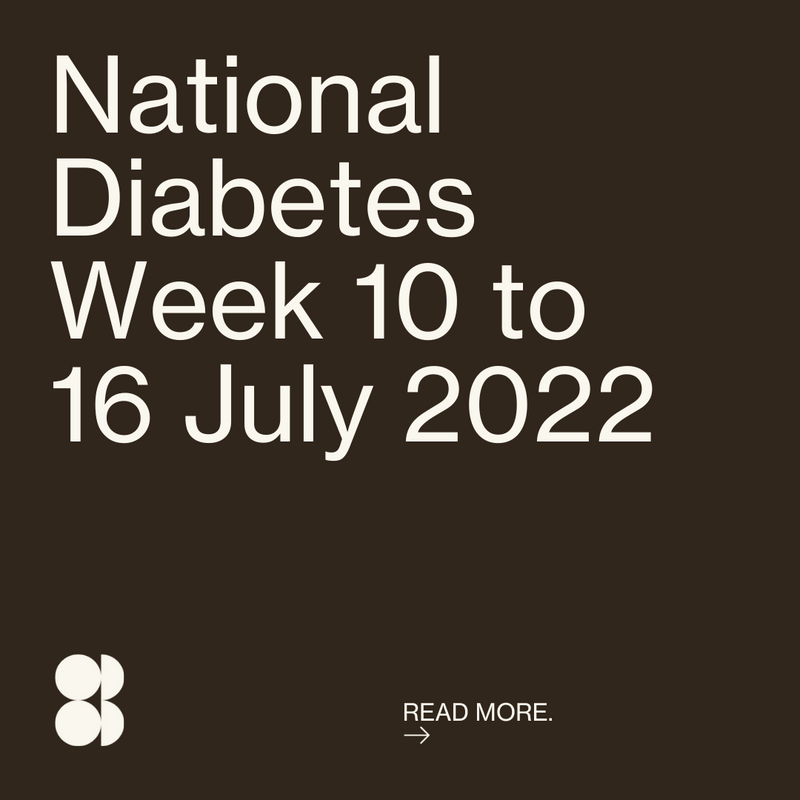National Diabetes Week 2022
11th July 2022
Posted in: Latest News

How obesity is related to diabetes – and how you can do something about it!
It is currently diabetes week, and it is important to remember that in patients with morbid obesity (BMI > 35), the most effective treatment for diabetes is weight loss. And the most effective treatment for weight loss is weight loss surgery. This is supported by the Diabetes Australia guidelines (https://www.diabetesaustralia.com.au/for-health-professionals/best-practice-guidelines/).
These guidelines state that for BMI > 30 and considering each individual situation, metabolic/bariatric surgery may be considered for people who have suboptimal blood sugars, are at increased cardiovascular disease risk and are not achieving recommended targets with medical therapy.
Diabetes week is a time to start conversations, and to make a difference to the lives of people with diabetes and obesity.
How is it related?
Being obese (BMI > 30) makes you more likely to develop diabetes. There are complex cellular and physiological mechanisms that are responsible for this link. They involve changes in β cell function, and multi-organ insulin resistance. These effects can be greatly improved with significant weight loss.
Not only does obesity increase your risk of diabetes, but it also increases your risk of high blood pressure, arthritis, strokes, high cholesterol and cancer.
Does everyone with obesity develop diabetes?
No, but you are far more likely to – up to 5x! There are other factors as well, including increased age, family history, diet, exercise, high blood pressure and cholesterol, history of gestational diabetes, and stress.
Can weight loss surgery help?
As little as 10% total body weight loss can improve blood sugars significantly. For people in a higher BMI range (BMI > 35), weight loss surgery has been demonstrated to normalise blood sugars in up to 50% of patients at 2 years. Following weight loss surgery, patients can lose 25-35% of their total body weight.
There have been numerous Swedish studies whose results demonstrate that the likelihood of normalising blood sugars after weight loss surgery is best within a year of the diagnosis of diabetes – early intervention is key!
There are also medications, and lifestyle modifications that are important to use in conjunction with your medical practitioner. An endocrinologist, who is specialised in hormones and diabetes, can assess your options and available treatments. It is important to seek specialist advice while discussing treatment options, which is why an endocrinologist is a major plus of our weight management practice.
Should everyone who is obese with diabetes have bariatric surgery?
No. Weight los s surgery is not recommended for children, or those who cannot commit to important long-term changes to routine and lifestyle.
The discussion of risks, benefits and indications for surgery need to be assessed on an individual basis. Sleeve gastrectomy and gastric bypass are the most common operations performed in Adelaide and Australia. Gastric bypass tends to provide more benefit in patients with diabetes, with higher rates of normalisation of blood sugars.
It is important to have a holistic team to meet with both pre and postoperatively. This includes dietitians, psychologists, exercise physiologists, bariatric GP, bariatric nurse and endocrinologist.
To discuss weight-loss surgery or another option further, please contact Dr George Balalis.